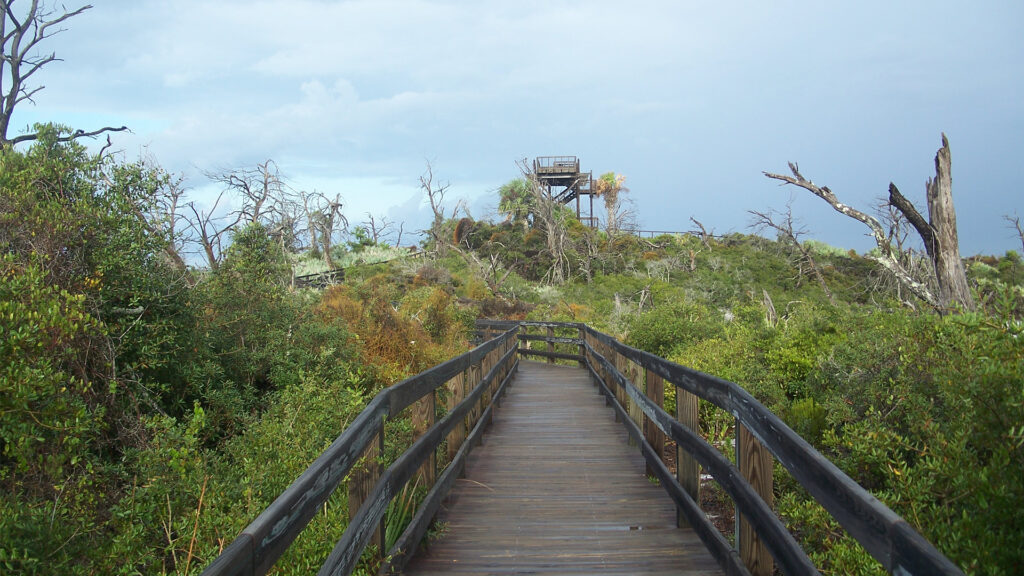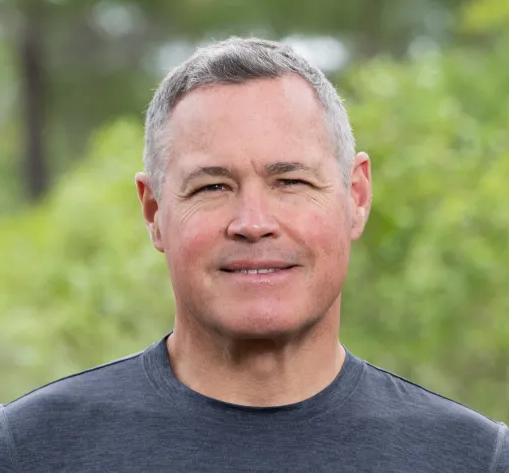By Jeff Corwin, host of “Wildlife Nation — Expedition Florida”
America’s Sunshine State is celebrated for having some of the greatest state parks in the United States. My fascination with nature germinated from childhood adventures in Florida, and my ABC television series, “Wildlife Nation — Expedition Florida,” is inspired by family retreats to Martin County. The Treasure Coast is home to extraordinary natural jewels, such as Jonathan Dickinson State Park.
Florida’s spectacular state parks are paramount to environmental stewardship, because they ensure that irreplaceable natural resources are accessible to everyone. Beyond millions of nature-loving Floridians, visitors from around the world journey to Florida to connect to these wild wonders. Florida state parks serve as vital, species-saving havens and ensure that native wildlife and habitats thrive for future generations!
It is no easy feat to become a Florida state park. Only the most spectacular pinnacles of endemic nature qualify for this prestigious designation. Managing Florida’s wild resources is no easy task, but thankfully Florida is blessed with the best. Throughout the state, a vast diaspora of talented professionals are dedicated to saving nature in agencies like the Florida Fish and Wildlife Conservation Commission, the Florida Department of Environmental Protection and Florida State Parks.

Until recently, we all assumed that Florida state park distinction secured a conservation firewall, but now these coveted perimeters of conservation have been breached. Shockingly, just in the last 50 years, 8 million acres of wilderness, roughly a quarter of all of Florida’s nature, have been destroyed for commercial and residential development.
Conservative estimates predict that within approximately three decades, Florida will lose an area of critical habitat the size of Vermont. Habitat loss, along with climate change, sea level rise and pollution, are driving many of Florida’s celebrated and iconic species to the brink. Florida’s state parks serve as a critical refuge, buffering the state from increasing natural disasters, while securing the survival of species that otherwise would be extinct.
One of the parks originally on the list for redevelopment, Jonathan Dickinson State Park, is made up of 16 distinct natural communities and is home to the most diverse and largest tract of unfragmented scrub habitat on Florida’s East Coast. This historic state park is a crucial lifeline for the critically endangered red-cockaded woodpecker and scrub jay.
The gorgeous red-cockaded woodpecker is a true Lazarus of nature, rising up to a thriving colony from just five pairs of birds that were introduced in 2020. Dickinson Park is a vital sanctuary for other Florida endemics like indigo snakes, scrub lizards, gopher frogs, bog frogs, Florida mice, four petal pawpaw, dancing lady orchids and perforated reindeer lichen. Thankfully, the nonprofit that had signed on to develop Dickinson’s golf courses withdrew its proposal over the weekend, but several other state parks remain at risk.
If the ill-conceived golf course plan had stayed on track for Dickinson, many of the keystone gopher tortoises, thriving in the park, would have been extirpated, literally evicted from their homes. One can’t just pick up a gopher tortoise that has lived in the park for nearly a century and relocate it, fingers crossed, hoping for the best. Tortoises displaced for the development of a golf course, lodge or pickleball court, would end up either in captivity or relocated to a sanctuary far away from their native home.

As for golf, I acknowledge its importance to Florida and the regional economy. 33% of out-of-state visitors, 14% of non-local residents, and a whopping 54% of Floridians play golf, which generates over $11 billion for the state. But Florida is already home to over 1,200 golf courses. Moreover, in the last decade more golf courses have closed than opened, so I am flummoxed as to why we need to destroy tens of thousands of acres of irreplaceable wild Florida, which irrevocably damages several glorious state parks.
The sobering lesson is that you can never take your eye off the proverbial ball. We must be vigilant to ensure that Florida’s shared wild legacy reaches future generations. This clandestine attempt to slither in golf courses, along with a plethora of other high-maintenance recreational offerings like pickleball courts and lodges, in nine precious state parks across Florida, reminds us that nothing is guaranteed. When we lower our collective guard, what remains of wild Florida will be ripped away from underneath our feet.
Jeff Corwin is a wildlife biologist, and the executive producer and host of ABC’s “Wildlife Nation — Expedition Florida.” This opinion piece was originally published by the Orlando Sentinel, which is a media partner of The Invading Sea. Editor’s note: After this piece was published, Gov. Ron DeSantis announced that the state will go “back to the drawing board” on development plans for parks.
If you are interested in submitting an opinion piece to The Invading Sea, email Editor Nathan Crabbe at ncrabbe@fau.edu. Sign up for The Invading Sea newsletter by visiting here.




I agree that some aspects of these parks MUST be preserved. They are huge and could stand some updating and more funding. This is an intelligent way to fund the parks and not altering them significantly
Such as condos or the such. Not everyone likes parks or golfing but with the two of them together it would bring in a nice revenue for both without taxing everyone that won’t enjoy either of those things and would hardly be visually noticed. The most important thing is it helps to fund them without having to dig in everybody’s individual pockets and would most likely increase funding significantly. Nothing operates for free and with increased residency in florida and no state tax the money has to come from somewhere.